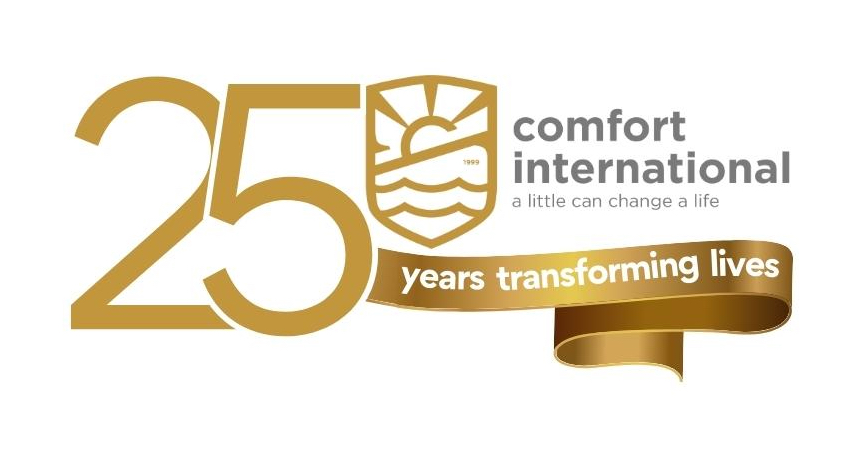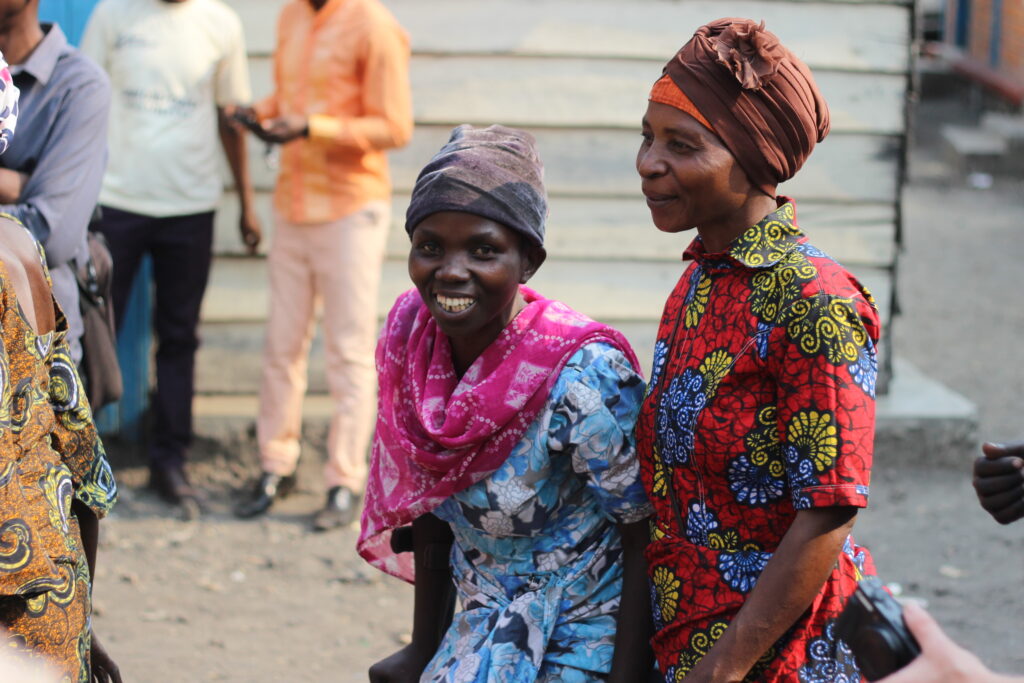The Heshima Women’s Sponsorship project seeks to make a difference to the lives of vulnerable Congolese women and their communities through the provision of monthly financial sponsorship and spiritual support. The key outcomes of the project are:
- To improve the standard of living in the lives of participants and participant’s families, primarily through an increase in income
- To teach participant’s business practice to help them develop sustainable businesses
- To integrate vulnerable women into a safe community where they can begin the process of healing emotionally and socially from trauma.
As part of a specific grant for an extension arm of the Heshima project, ten women were provided with $100 loans. Seven of the women had been widowed and on average they had 5.3 children. Principal traumas experienced were the killing of their husbands or children, and their own rape. Examples of the women are:
Uwase: ‘My parents died in 2012 during the M23 war and left myself and my ten year old sister. I decided to marry but four years later my husband was killed with machetes by the ADF army and I was left with two children. I fled to Kirotshe where I met Comfort Congo. I am traumatised by the images of my husband’s cutting which never leaves my mind and it is made worse because I have no activity to do.’
Riziki: ‘While we were fleeing from war three soldiers caught me and raped me. My husband rejected me and I went to live alone in Kirotshe with my four children but we have no means for survival.’
Furaha: ‘I am a mother of seven children and I lost my husband in the CNDP war. I became a porter of heavy goods to feed my children but I was raped by four men and traumatised.’
The income generating activities developed through the grants were the setting up of micro-businesses selling clothes, cereals, fish, shoes, oil and general foodstuffs. All of the women received business practice support as part of the grant.
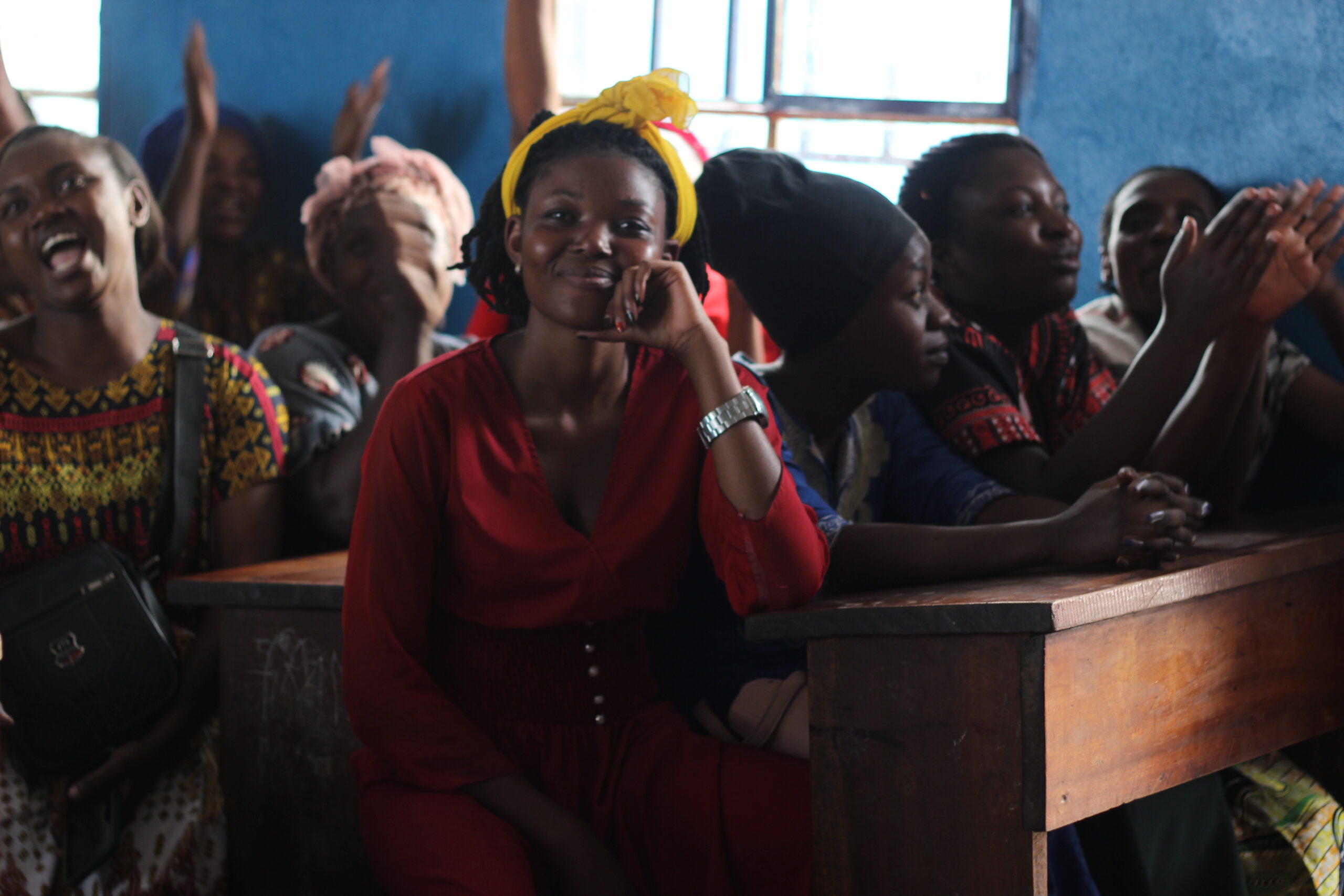
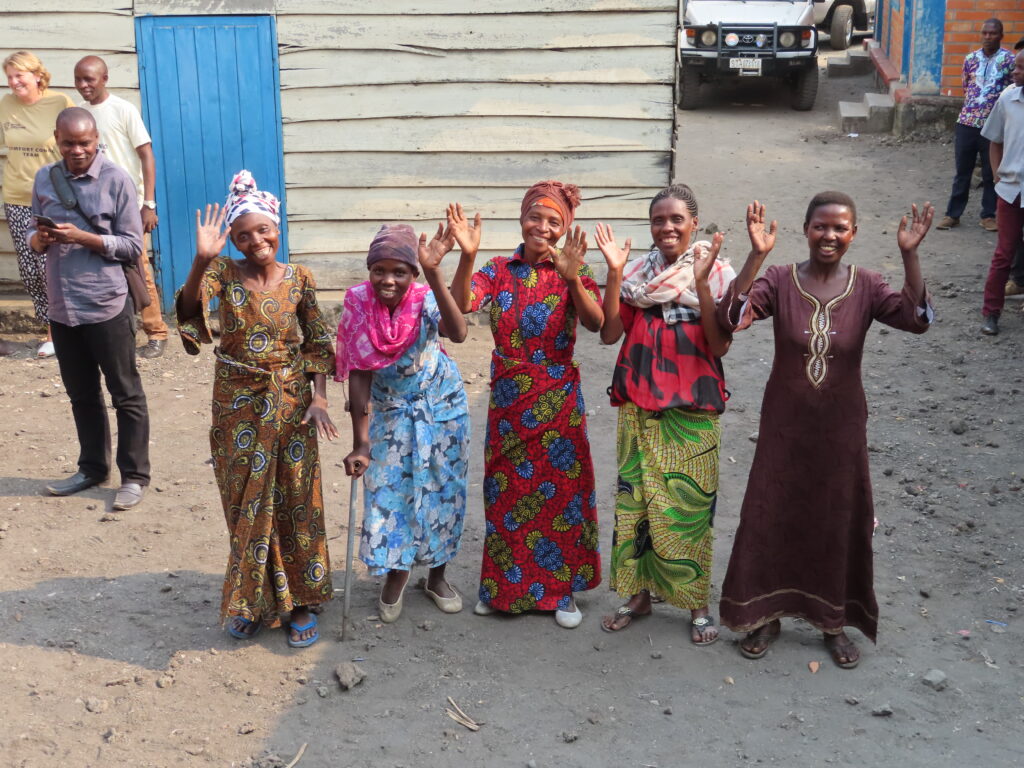
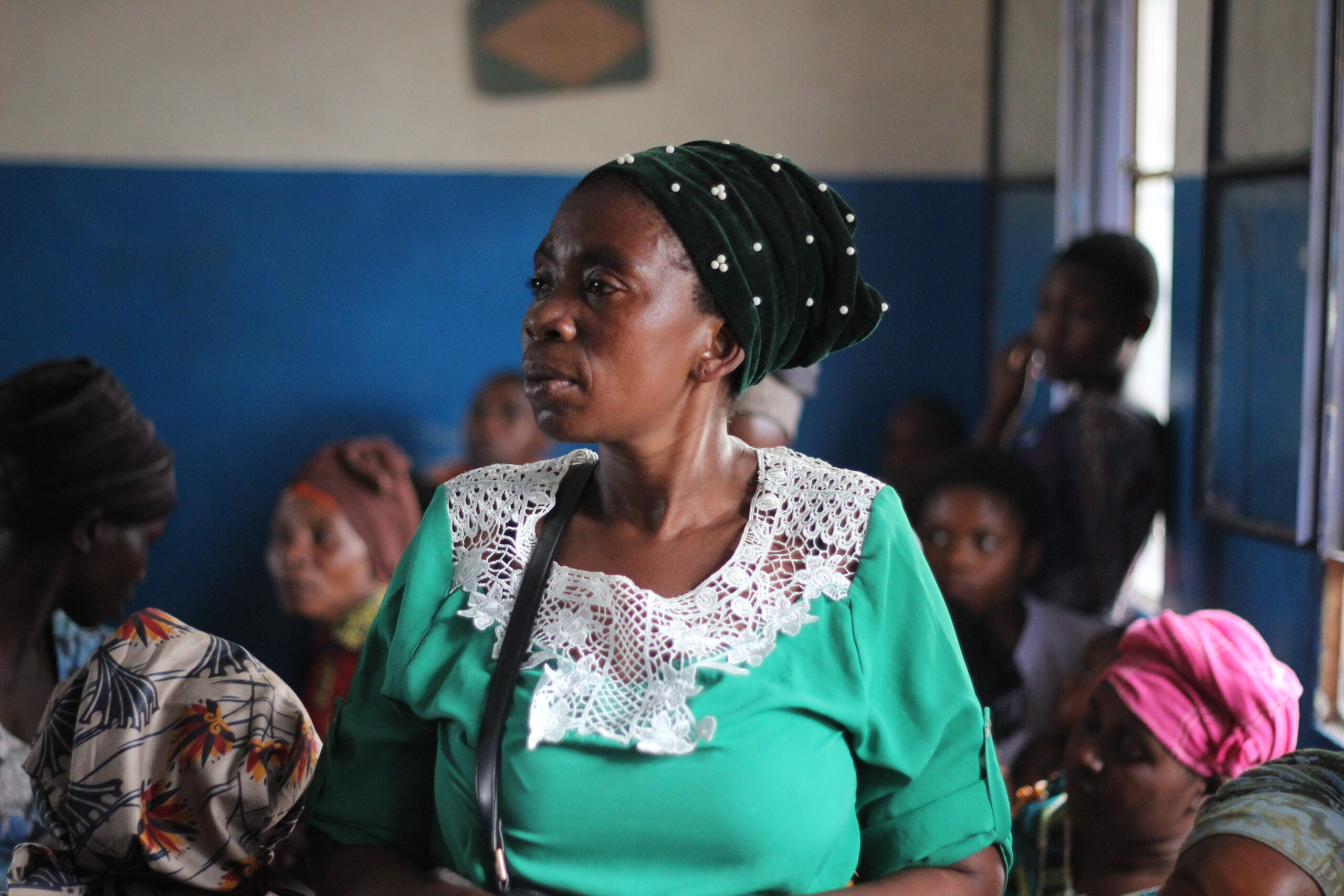
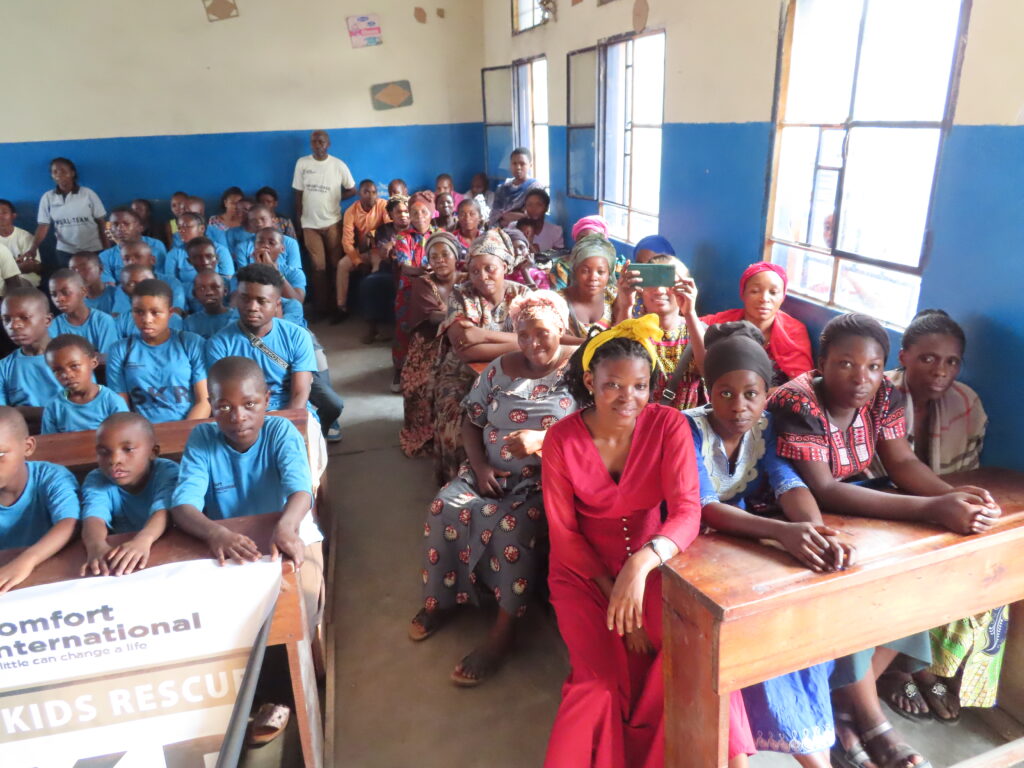
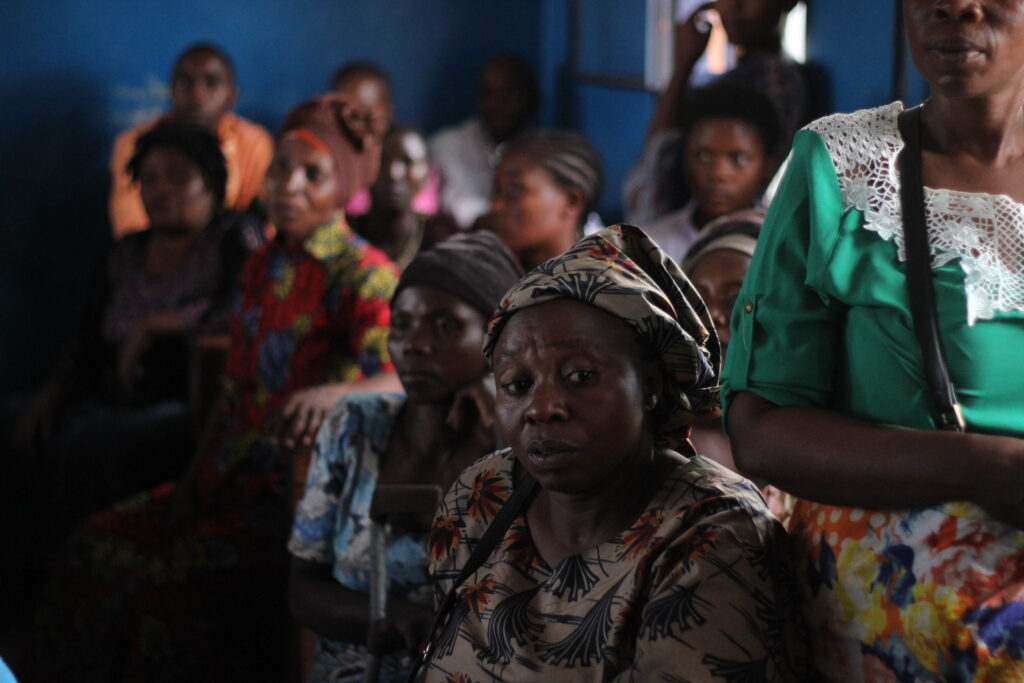
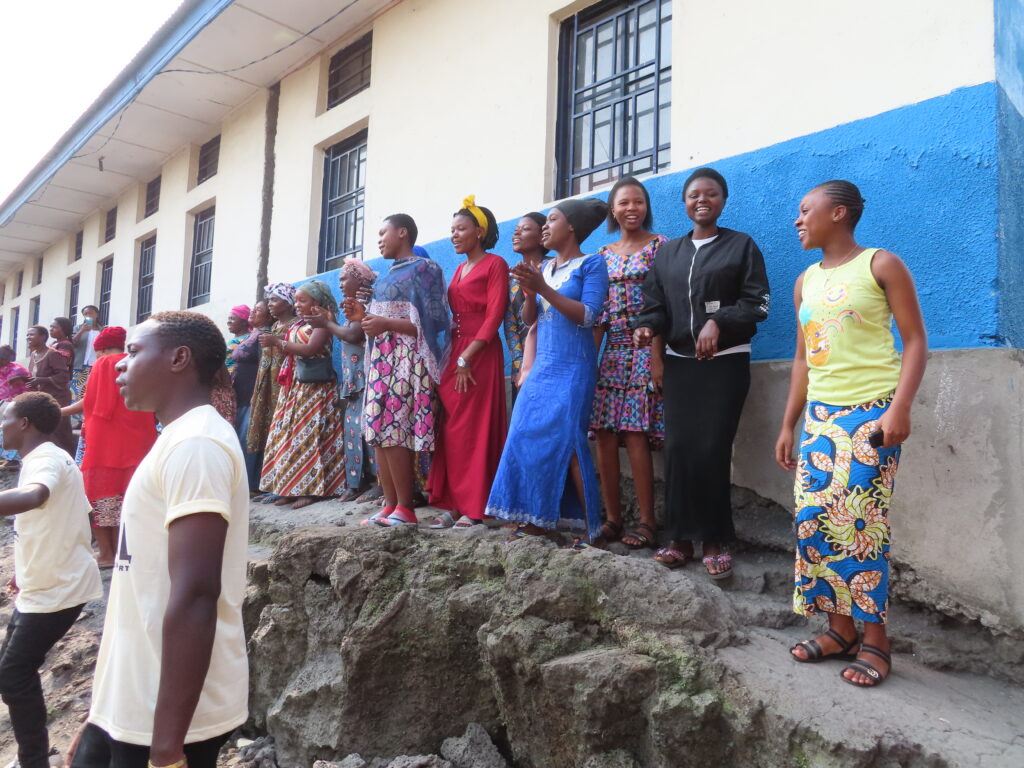
At the end of the five month monitoring period the income of the ten women on the extension project had risen by 250%. Among the things the women ‘are able to do now that you were not able to do before’ are:
- ‘Before my children did not study but now they are at school’
- ‘My income doubled – before my children ate once a day but now they eat twice and I have diversified the products I sell’
- ‘I pay rent and am able to buy clothes’
- ‘Now I can feed my family well’
7 out of the 10 women reported that being part of the Heshima group helped their emotional healing and all ten reported that their sense of isolation was reduced. Other benefits included relief from punishing manual labour, restoration of families and funding of other members of the family to undertake small business activities of their own. Among the comments were:
- ‘The participation in the group helped me a lot. I felt isolated by staying alone at home but now I have an activity and i can feed my family’
- ‘The participation has just reduced my trauma which was due to the abandonment of my husband. When he heard that I had got support from the project he came back and now we are happy in our family’
- ‘The participation helped me a lot – before I was carrying heavy loads and with my age it was very difficult and tiring. But now I have my own activity’
Our hope is that we will access further funding to increase both the size and number of loans available and continue to see women released from the trauma, isolation and poverty of their lives after war and violence. All three major desired outcomes have been achieved and, most importantly, the lives of the women have been restored with the funds still available to repeat the extension of the project and multiply the opportunities for other women.
